
When it comes to seeking the best jeweler or gemstone appraiser, look for the Gemological Institute of America (GIA) label. The what? Having GIA on your resume signifies excellence within the gemstone community and you can earn that label by becoming a Graduate Gemologist.
WHAT IS THE GEMOLOGICAL INSTITUTE OF AMERICA?
GIA is a private, nonprofit educational institute founded in 1931 by Robert Shipley to focus on research and education in gemology and jewelry arts to professionalize the business and raise a cadre of jewelers the public could trust. A jeweler himself in the 1920s, Shipley recognized deficiencies in his knowledge, so he undertook training in Europe via the Great Britain National Association of Goldsmiths gemological course. Back in the U.S., he made it his mission to build a community of like-minded professionals.
The institute undertakes research, publishes the quarterly journal Gems & Gemology, and provides important resources for the industry, including a laboratory, library and newly developed instruments for identifying and grading gemstones. For instance, it was GIA that crafted the indispensable 10x eye loupe and that devised the famous "Four C's" approach to evaluating and grading diamonds based on cut, clarity, color and carat weight. Research conducted within institute labs develops ever-better methods for identifying, evaluating and grading gemstones and detecting synthetics and treated stones.
Equally important, GIA offers courses, programs and accreditation.
APPLY AND ATTEND GIA WORLDWIDE
The primary GIA campus and headquarters are in Carlsbad, California. It has a worldwide presence with some 3,000 employees and campuses, labs and/or research centers in 13 countries. It also has the GIA Global Leadership Program with the Harvard Business School.
この記事は Rock&Gem Magazine の June 2023 版に掲載されています。
7 日間の Magzter GOLD 無料トライアルを開始して、何千もの厳選されたプレミアム ストーリー、9,000 以上の雑誌や新聞にアクセスしてください。
すでに購読者です ? サインイン
この記事は Rock&Gem Magazine の June 2023 版に掲載されています。
7 日間の Magzter GOLD 無料トライアルを開始して、何千もの厳選されたプレミアム ストーリー、9,000 以上の雑誌や新聞にアクセスしてください。
すでに購読者です? サインイン
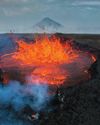
THE BRIGHT SIDE OF VOLCANIC ROCK
As a mineral resource, volcanic rock is decidedly short on glamour.
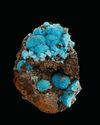
The Other Copper Minerals
12 Lesser-known Collectible Species

MINERAL COLLECTING -AND ROCK & GEM
Evolving Together FOR 54 YEARS
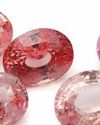
Gemstone Trends
A Look Back at 2024 & What to Expect in 2025
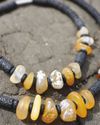
How to Make a GEM BEAD NECKLACE
No Lapidary Experience Needed!
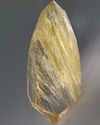
Framing Nature's Art
Faceting Rutilated Quartz for Beginners
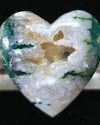
BEDAZZLED BLUE SEAM AGATE
More than several centuries ago, mining was the profession most often seen as befitting of men.
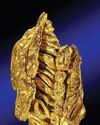
ROCK & GEM FIELD GUIDE:
Spinel is a captivating gemstone with a rich history of being mistaken for gems like ruby and sapphire.
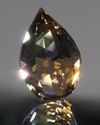
SNAKE SCALE DROP 1.5:1
This Faceting Focus is revisiting the briolette gemstone design because of its popularity with independent and hobby gemstone faceters.
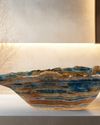
STONE CHIC
How Earth-Inspired Decor Brings Comfort to our Home